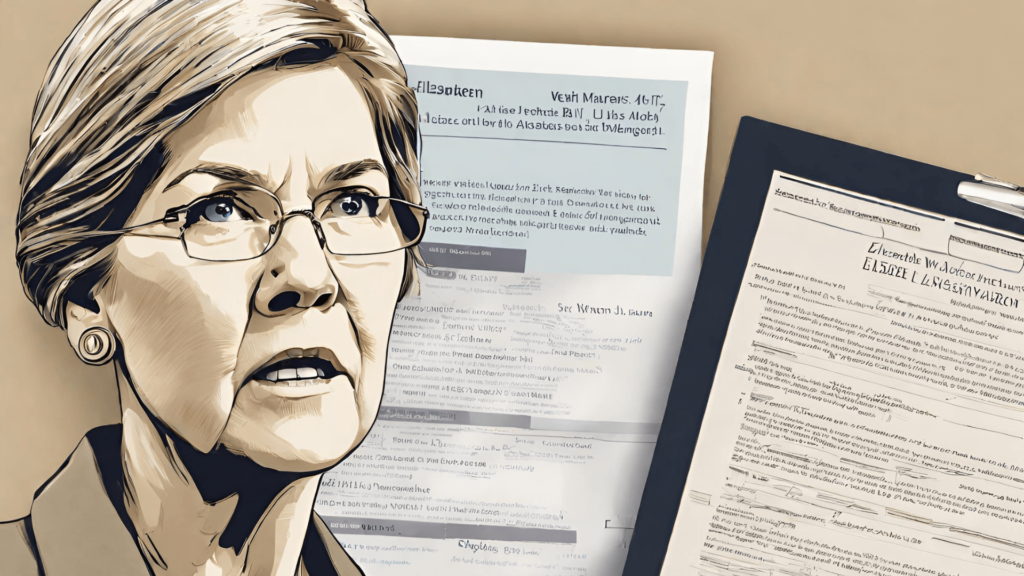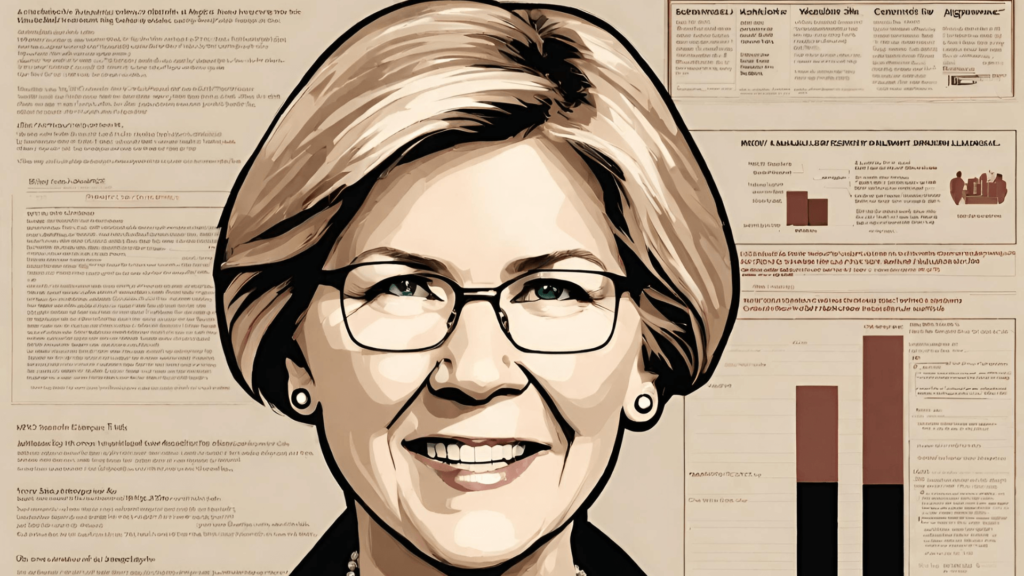Examining the Success Rate of Elizabeth Warren's Bills

Success Rate of Elizabeth Warren
Background on Elizabeth Warren | Examining the Success Rate of Elizabeth Warren’s Bills
Examining the Success Rate of Elizabeth Warren’s Bills | Elizabeth Warren, a Democratic senator from Massachusetts, is a prominent figure in American politics. Known for her progressive policy outlook and fighting for economic and social justice, Warren has emerged as a key player on Capitol Hill. Throughout her career, she has introduced numerous bills with the aim of effecting substantial change.
Overview of the Importance of Legislative Success
Legislative success is a crucial measure of a politician’s effectiveness in shaping national policies. By examining Elizabeth Warren’s track record, we can gain insights into her ability to navigate the complexities of the legislative process and to translate her policy priorities into actionable legislation. Understanding her successes and failures can provide valuable context for evaluating her effectiveness as both a senator and a potential presidential candidate.
Purpose of the Article
The purpose of this article is to delve deep into Elizabeth Warren’s legislative success rate by analyzing the progress, impact, and public perception of her major bills. By examining the context in which Warren operates, considering the factors influencing her success, and evaluating the implications for her policy platform, we can gain a comprehensive understanding of her legislative accomplishments.
Setting the Context: Understanding Warren's Approach to Legislation

Warren’s Ideological Framework
Elizabeth Warren’s legislative approach is rooted in a progressive ideology that places emphasis on economic and social justice. Her policy priorities include tackling income inequality, enhancing consumer protections, implementing financial reform, and expanding access to affordable healthcare and education. These issues are at the heart of her legislative agenda and are aligned with her commitment to creating a fairer and more equitable society.
Warren’s Legislative Strategies
To advance her policy agenda, Elizabeth Warren employs several key strategies. Firstly, she actively works to build coalitions and foster bipartisanship, recognizing the importance of collaboration in achieving meaningful legislative outcomes. Secondly, Warren strategically leverages her committee assignments, utilizing her expertise in areas such as banking, oversight, and healthcare to influence policy decisions. Finally, she effectively utilizes media channels to amplify her message and generate public support for her bills.
Historical Assessment of Warren’s Success Rate
In assessing Elizabeth Warren’s legislative success, it is important to consider her track record in comparison to other senators. While success can be subjective and influenced by a multitude of factors, a quantitative analysis of bill passage rates and impactful policy outcomes can provide valuable insights. By understanding the factors that have influenced Warren’s overall success rate, we can better evaluate her effectiveness as a legislator.
Analyzing Warren's Major Bills: Success and Impact

In this section, we will examine five important bills introduced by Elizabeth Warren. By exploring their background, objectives, legislative progress, challenges faced, and impact on society, we can gain a comprehensive understanding of the effectiveness of Warren’s legislative efforts.
[First Important Bill]
Background and Objectives
The first important bill introduced by Elizabeth Warren addresses the pressing issue of student loan debt. With the aim of providing relief to millions of Americans burdened by student loans, Warren’s bill seeks to implement loan forgiveness and reform the student loan system to make education more affordable and accessible.
Legislative Progress and Challenges
Despite the support garnered from fellow Democrats and advocacy groups, Warren faced significant challenges in gaining bipartisan support for her bill. Opposition argued that loan forgiveness would be unfair to those who had already paid off their loans and raised concerns about the financial impact of such a policy. While the bill did not pass, Warren’s efforts brought national attention to the issue and sparked conversations about the need for comprehensive student loan reform.
Impact and Public Perception
Warren’s bill had a significant impact on public discourse surrounding student loan debt. By bringing attention to the issue through her legislative efforts, she elevated the conversation and placed pressure on lawmakers to address the growing crisis. While the bill did not become law, it increased awareness and contributed to ongoing discussions about the need for student loan reform.
[Second Important Bill]
Background and Objectives
The second important bill introduced by Elizabeth Warren focuses on strengthening consumer protections in the financial industry. Recognizing the need for greater oversight and regulation, Warren’s bill seeks to address predatory lending practices, improve transparency, and enhance accountability in the financial sector.
Legislative Progress and Challenges
Warren’s bill faced significant opposition from powerful financial institutions and their lobbyists, who argued that increased regulation would stifle economic growth and limit access to credit. Despite facing an uphill battle, Warren utilized her expertise and committee assignments to build alliances and bring attention to the need for stricter regulation in the financial industry.
Impact and Public Perception
Although the bill did not pass, Warren’s efforts had a lasting impact on public perception and policy discussions surrounding financial reform. By championing consumer protections and highlighting the risks of unchecked corporate power, Warren positioned herself as an advocate for everyday Americans and a critic of Wall Street excesses.
[Third Important Bill]
Background and Objectives
The third important bill introduced by Elizabeth Warren aims to address income inequality by implementing a wealth tax. With the objective of taxing the ultra-wealthy to fund investments in infrastructure, healthcare, and education, Warren’s bill seeks to level the playing field and ensure that the burden of funding public goods is shared more equitably.
Legislative Progress and Challenges
Warren’s wealth tax bill faced intense opposition from conservative lawmakers and interest groups, who argued that it would discourage investment, stifle economic growth, and be difficult to implement effectively. Despite the challenges, Warren’s bill generated significant public support and sparked important conversations about wealth inequality and the fairness of the tax system.
Impact and Public Perception
While the bill has not become law, Warren’s efforts have had a lasting impact on public discourse surrounding income inequality and tax policy. By pushing for a wealth tax, she sparked a nationwide debate about the role of the ultra-wealthy in society and the need for a more progressive tax system.
[Fourth Important Bill]
Background and Objectives
The fourth important bill introduced by Elizabeth Warren focuses on addressing climate change and transitioning to a clean energy economy. With the goal of reducing greenhouse gas emissions and investing in renewable energy, Warren’s bill seeks to combat the growing threat of climate change and create sustainable jobs.
Legislative Progress and Challenges
Warren’s bill faced challenges related to the partisan divide over climate change policy and the influence of fossil fuel industry lobbyists. However, her commitment to renewable energy and her ability to stimulate public support for climate action helped elevate the issue and lay the groundwork for future legislative efforts.
Impact and Public Perception
While the bill did not pass, Warren’s climate change advocacy significantly influenced public perception and policy discussions surrounding the urgency of transitioning to a clean energy economy. Her efforts helped keep the issue in the national spotlight and contributed to the growing momentum for climate action.
[Fifth Important Bill]
Background and Objectives
The fifth important bill introduced by Elizabeth Warren addresses healthcare reform. With the objective of expanding access to affordable healthcare for all Americans, Warren’s bill seeks to build upon the Affordable Care Act and move toward a more comprehensive and equitable healthcare system.
Legislative Progress and Challenges
Warren’s healthcare reform bill faced significant challenges due to the partisan divide over the role of government in healthcare and the complexity of the issue. However, her commitment to healthcare as a fundamental right and her ability to articulate the need for change generated public support and kept the conversation alive.
Impact and Public Perception
While Warren’s bill did not become law, her efforts have had a substantial impact on public perception and policy discussions regarding healthcare reform. By championing the importance of accessible and affordable healthcare, Warren has positioned herself as a leader in the fight for universal coverage.
Factors Influencing Warren's Legislative Success

In evaluating Elizabeth Warren’s legislative success, it is crucial to consider the factors that have shaped her track record. Several key aspects have influenced her ability to navigate the legislative landscape and achieve policy outcomes.
Political Dynamics and Partisan Gridlock

The role of party affiliation is a significant factor in determining a bill’s success in Congress. With an increasingly polarized political landscape, bipartisan cooperation has become more challenging, resulting in partisan gridlock and making it difficult to pass controversial legislation. As a progressive senator from Massachusetts, Warren’s policy priorities often face opposition from conservative lawmakers.
Bill Complexity and Policy Content

The complexity of bills and their policy content can also impact their success rate. Navigating the intricacies of legislative language requires expertise and strategic coalition-building. Moreover, public understanding and support for the bill play a crucial role in its passage. Examining the Success Rate of Elizabeth Warren’s Bills.
Warren's Leadership and Persuasiveness

Warren’s effectiveness in advancing her legislative agenda is influenced by her leadership skills and ability to persuade her colleagues. Active engagement in Senate committees, effective public speaking, and relationship-building with colleagues and constituents all contribute to her overall success rate in pushing forward meaningful legislation.
Summary and Conclusion
In summary, Elizabeth Warren has consistently advocated for progressive policy priorities throughout her career. By analyzing her major bills and assessing their impact, we can gain insights into her legislative success rate. Factors such as political dynamics, bill complexity, and Warren’s leadership abilities all play a role in determining her effectiveness as a legislator. Ultimately, understanding Elizabeth Warren’s track record provides valuable context for evaluating her viability as a presidential candidate and the long-term implications of her policy platform.
FAQs:
1. What factors determine a bill’s success in Congress?
A bill’s success in Congress is influenced by factors such as party affiliation, partisan gridlock, bill complexity, policy content, public understanding and support, and leadership abilities.
2. How does Elizabeth Warren compare to other senators in terms of legislative accomplishment?
Elizabeth Warren’s legislative accomplishments can be evaluated by comparing her track record with other senators, analyzing bill passage rates, and assessing the impact of her policy outcomes.
3. Has Warren been effective in achieving her progressive policy priorities?
Elizabeth Warren has been effective in championing her progressive policy priorities, sparking important policy discussions, elevating public awareness, and shaping the national discourse on issues such as student loan debt, consumer protections, income inequality, climate change, and healthcare reform.
4. What role does public opinion play in the success of Warren’s bills?
Public opinion plays a significant role in the success of Elizabeth Warren’s bills, as public support and understanding can influence lawmakers’ decision-making and policy outcomes.
5. How does Warren’s legislative success impact her viability as a presidential candidate?
Warren’s legislative success enhances her viability as a presidential candidate by showcasing her ability to effect change, demonstrating her commitment to progressive values, and positioning her as a leader in shaping national policies that align with her policy platform’s objectives.
We’re eager to hear from you! What are your thoughts on Elizabeth Warren’s legislative efforts and their impact? Share your perspectives or questions about her bills in the comments below. Your insights add value to the conversation!
Examining the Success Rate of Elizabeth Warren’s Bills





Its best informative
Its best informative post